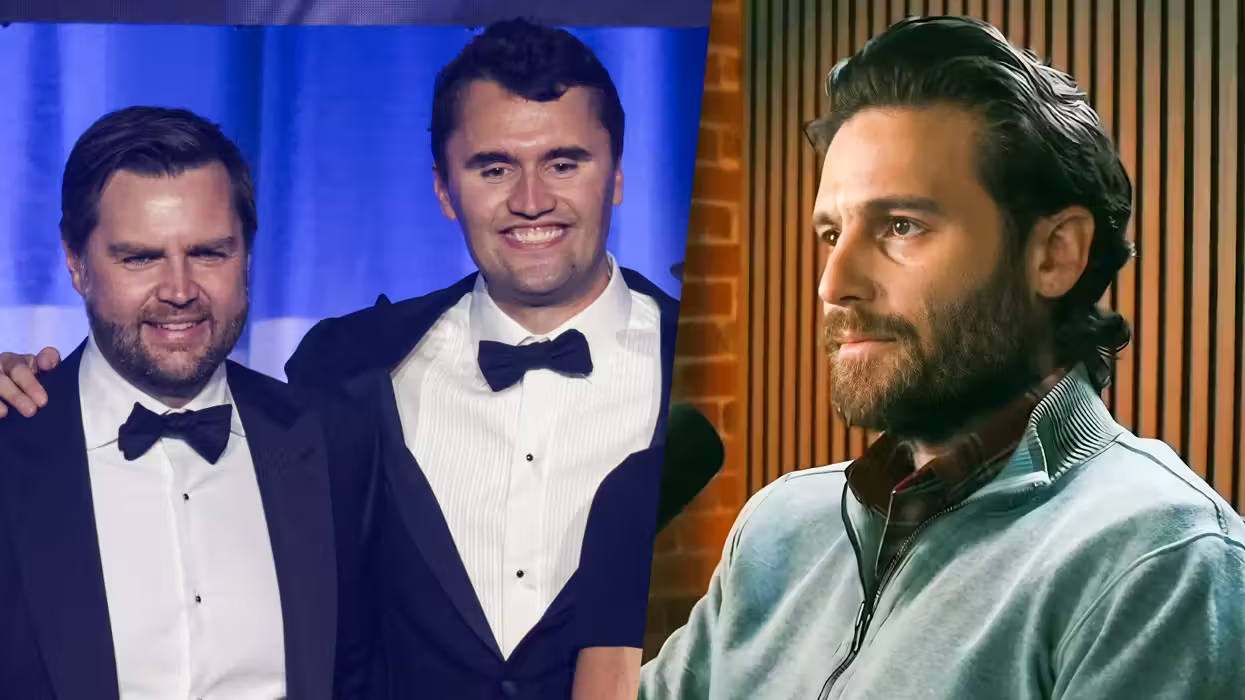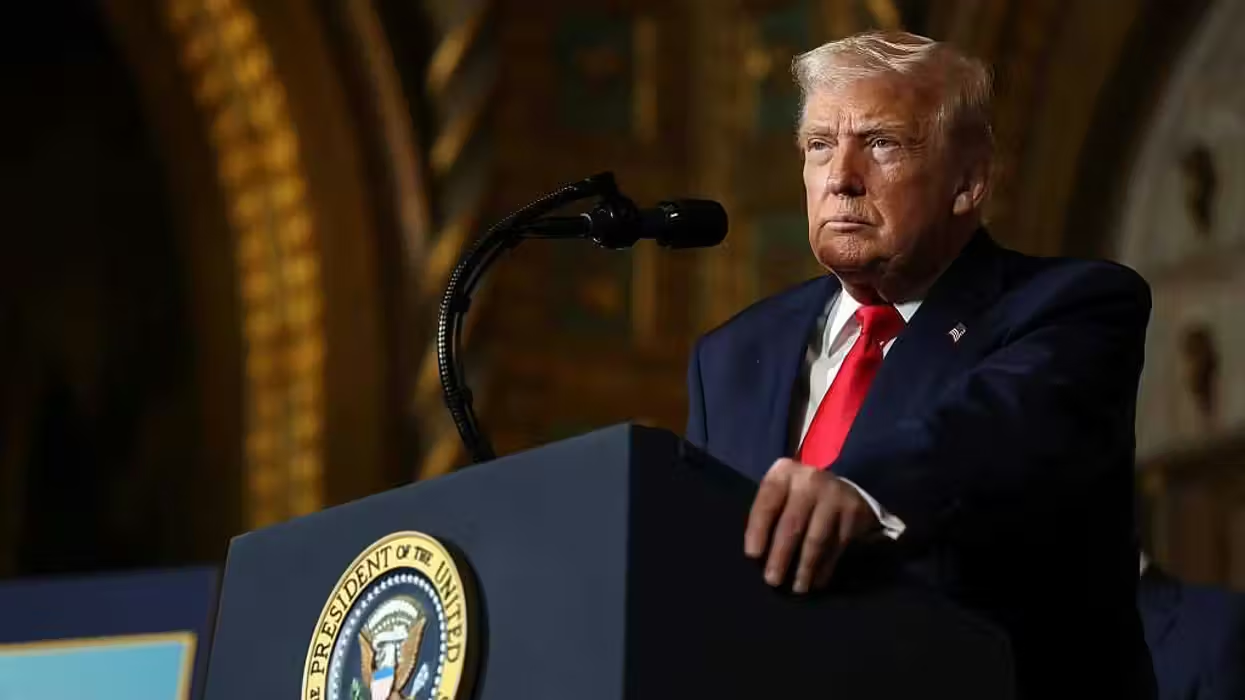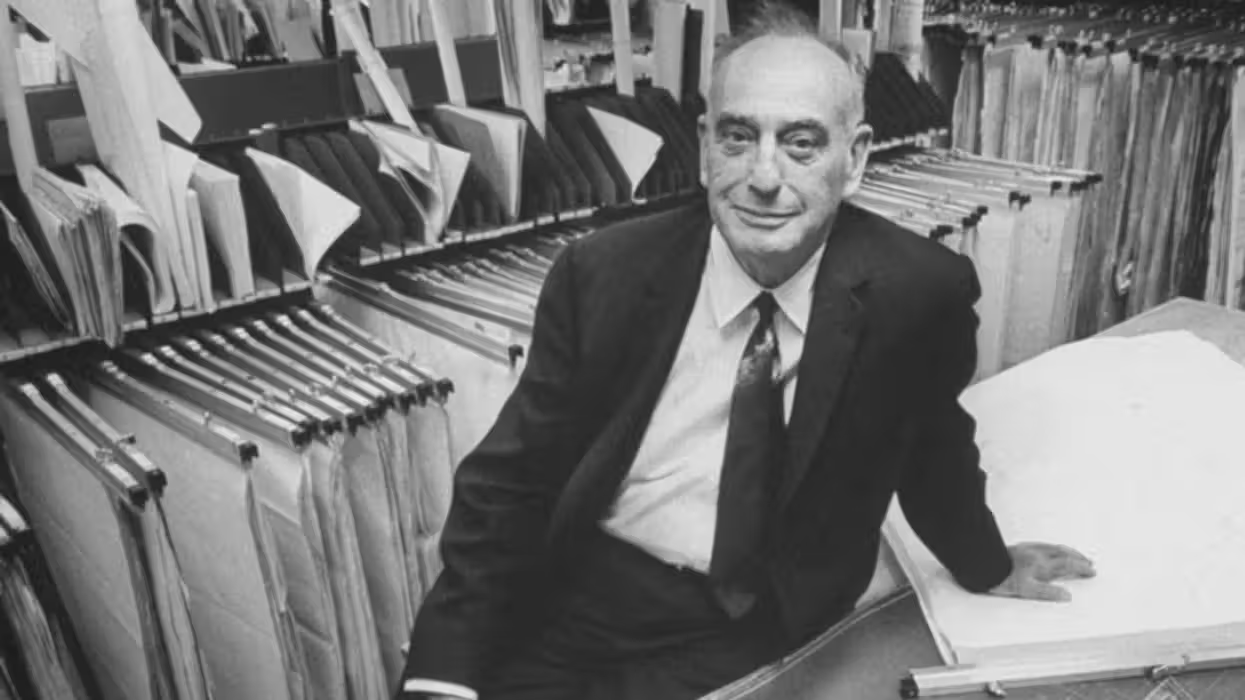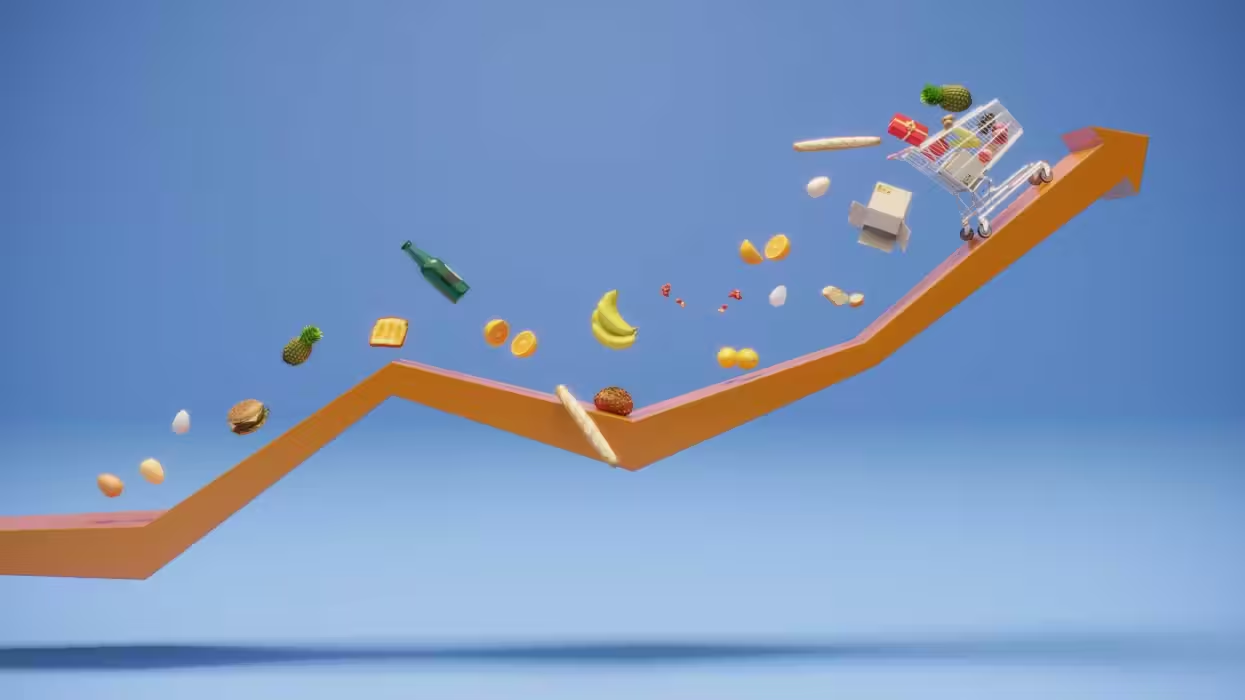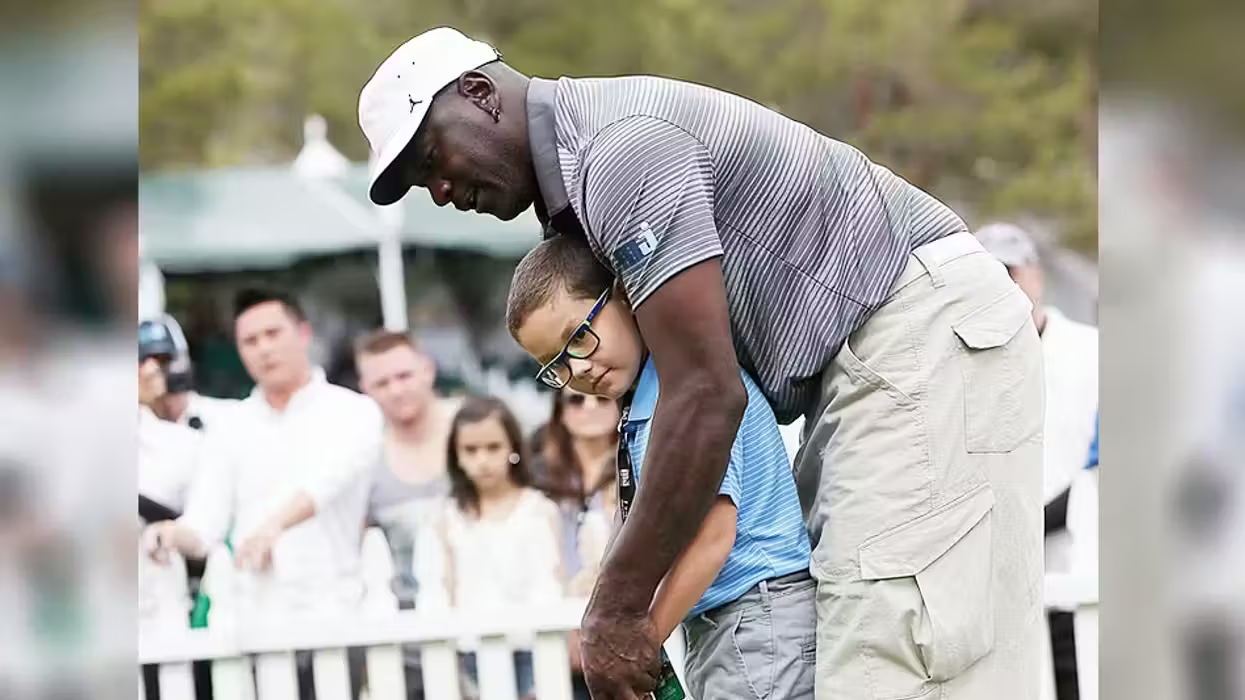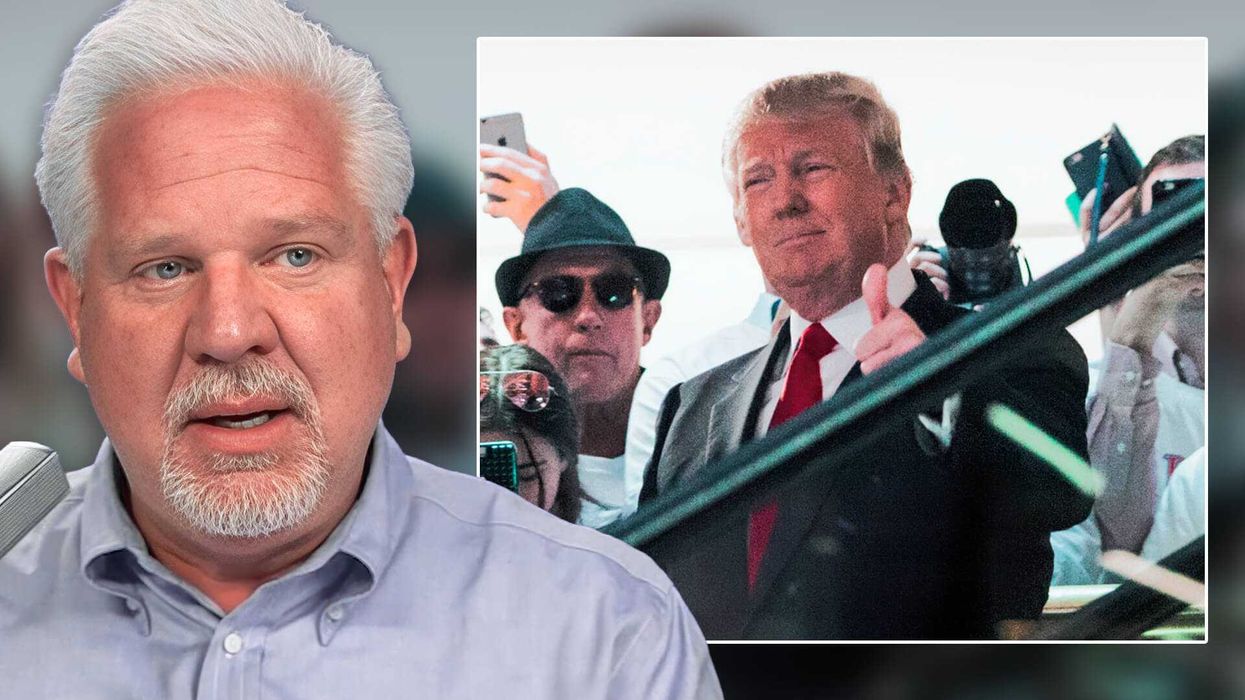© 2025 Blaze Media LLC. All rights reserved.
Exclusive: Converted Atheist Blogger Describes Reconciling Her New-Found Faith With Being a Bisexual
June 22, 2012
"I’m bisexual."
There's something about religious conversion stories. Atheists generally extol these spiritual transitions, specifically when someone renounces their faith and embraces a new-found, secular worldview. But when the situation goes the opposite direction -- when an individual leaves behind an atheistic worldview and becomes a Christian (or joins another faith) -- non-believers naturally lament the decision.
 Earlier this week, The Blaze told you about atheist blogger Leah Libresco who shocked the world when she announced that she is now a Catholic. Many believers and non-believers, alike, have responded strongly to her proclamation. Naturally, there are many questions -- curiosities she has attempted to answer on her blog.
Earlier this week, The Blaze told you about atheist blogger Leah Libresco who shocked the world when she announced that she is now a Catholic. Many believers and non-believers, alike, have responded strongly to her proclamation. Naturally, there are many questions -- curiosities she has attempted to answer on her blog.
On Wednesday, I connected with Libresco for an e-mail interview to further discuss her evolving worldview. My first question, considering that she's leaving the secular world behind, was how atheists have reacted to her bombshell announcement.
"It’s varied a lot. Atheists I know in person or who have been reading my blog for a while are still picking fights, but they’re much better fights than I get from people who have just stumbled on the blog after the announcement," she wrote.
(Related: See This Atheist Blogger‘s Stunning Announcement That She’s Converting to Catholicism)
While Libresco says she doesn't mind aggression from detractors, she finds it frustrating when they focus solely on more generic arguments about Catholicism as a whole -- particularly when they haven't taken the time to read her past writings on the subject.
"They can end up asking me to defend things I don’t in fact believe, or assume my former atheism closely resembled theirs, which is not always true," she added.
When asked what led her away from atheism and toward the Catholic church, Libresco explained that secularism did not offer, in her view, a decent explanation regarding how human beings possess "knowledge of objective morality." This, in itself, though, wasn't enough for the blogger to settle on the notion that the Catholic Church, by default, has all of the answers.
Libresco continued, providing more insight into the path that inevitably separated her from atheism:
I basically ended up contrasting my very patchy, in progress atheist metaphysics with the coherent, well-fleshed out, but not necessarily true propositions of Catholicism. It’s hard to figure out which one better matches the world when one hasn’t had that many people working on it for that long and the other might only look good because of overfitting. [...]But more and more, my atheist friends and sparring partners thought I’d gone wrong one step back, and objected to my holding to the idea of morality as human-independent and objective (i.e. we uncover it like archeologists, we don’t build or design it like architects). To top it off, I’d switched to thinking of morality in a virtue ethics framework (your moral imperative is to reform your character and try build up a habitual attraction to right action). The trouble is, virtue eithics kind of presupposes teleology (these is some particular form you are called to embody) and my atheist friends thought that was pretty far out of bounds.
But I was as sure of the reality of moral law as I was of the reality of the physical world. Both of which can’t be proven since I can’t step outside them to examine them. And the more I thought about the metaphysics that were necessary to undergird this moral system, the more I thought morality seemed less like an distant rulebook and more like an animating spirit.
In other words: the existence of inherent morality forced her to accept that it had to be created, not invented. And for something to be created, it needs a creator outside of man.
In the end, it's hard to ignore the major differences that exist between theology and secularism. At its core, a transition between from one to the other creates a paradigm shift that impacts everything from one's thoughts about political and social issues to one's interpretation of human interaction and purpose.

When asked how Libresco anticipates she may struggle with her new-found Catholicism, she was candid. To begin, the emotional components that accompany religion may prove to be a struggle for her, particularly when it comes to the emotive relationship that many believers describe having with Jesus Christ.
"I think most people are a little warmer or more emotional than I am, so it’s a bit of a disconnect when other people are talking about their feelings of nearness to Christ and I’m more talking about epistemology and analogies to math," she said. "My enthusiasm, though sincerely felt, can come off pretty cold and overly abstract to other people."
Then, there's the political element. Libresco admits that she's not "politically conservative," but that she's aware that many Catholics are. This political divide is another challenge that she will likely encounter as she progresses into the faith.
In her initial article announcing her conversion, Libresco also acknowledged that she's not fully comfortable with the Catholic Church's teachings on homosexuality. We asked her to expand upon this subject, seeing as it stands at the forefront of debate in both political and theological circles. She explained that her own sexual identity plays a role in how she understands the church's teaching.
"I’m bisexual. Other queer people’s experience of their orientation varies, but, as far as I’m concerned, I’m bisexual because gender feels about as salient to me as hair color when it comes to looking for dates," Libresco claims. "That means I’m already out of step with the Catholic Church before you even get up to gay marriage or any issue like that, because the Church thinks gender is much more central to someone’s identity than I do."

Of course, Libresco's academic curiosities and her penchant for exploring issues fervently leads her to admit that she'll spend time continuing to read more about the subject. Additionally, she says she'll "pick a lot more fights over the next few years."
"I’m willing to not date women in the meantime, but I wouldn’t necessarily universalize that choice," she added. "I’m in a much different position than gay people or bi folks who care more about gender than I do. I’m not in much of a position to give advice."
As for civil marriage, itself, the blogger contends that she continues to support it and that there isn't much of a viable case against it. In her mind, civil and sacramental marriage have profound differences and the former simply doesn't deserve, based on the merits of religious fervor, to be rejected.
"If people can’t muster a convincing argument against gay marriage that doesn’t depend on the revealed truths of the Catholic Church, then asking the government to ban it is like expecting the State to enforce kosher dietary law on everyone (or even only secular Jews)," Libresco added.
She also has some advice for atheists who may be questioning their non-belief: It's okay to alter your opinion. Rather than sticking to non-belief, even as doubts begin to come into one's mind, Libresco contends that it's okay to change "how accurate your map is."
"Whatever your religious beliefs, if you want to do heavy-lifting philosophical thinking, it’s a good idea to pause and think about thinking. Learn about common forms of bias and flawed reasoning and work on spotting bad heuristics," she added.
Libresco also encouraged atheists and believers, alike, to take her Ideological Turing Test over on her Patheos blog, where Christians and atheists can compete to see who can more accurately imitates one another (it's a fascinating test, to say the least). For now, it seems the atheist-turned-theist will be continuing to explore and seek out deeper answers and understanding surrounding the Catholic faith.
Want to leave a tip?
We answer to you. Help keep our content free of advertisers and big tech censorship by leaving a tip today.
Want to join the conversation?
Already a subscriber?
Billy Hallowell is a digital TV host and interviewer for Faithwire and CBN News and the co-host of CBN’s "Quick Start Podcast."
Billy Hallowell
Billy Hallowell is a digital TV host and interviewer for Faithwire and CBN News and the co-host of CBN’s "Quick Start Podcast."
more stories
Sign up for the Blaze newsletter
By signing up, you agree to our Privacy Policy and Terms of Use, and agree to receive content that may sometimes include advertisements. You may opt out at any time.
Related Content
© 2025 Blaze Media LLC. All rights reserved.
Get the stories that matter most delivered directly to your inbox.
By signing up, you agree to our Privacy Policy and Terms of Use, and agree to receive content that may sometimes include advertisements. You may opt out at any time.

